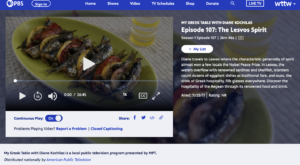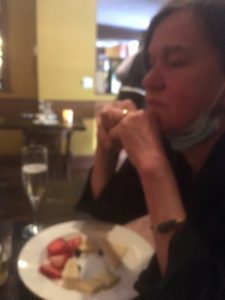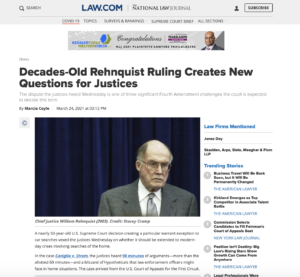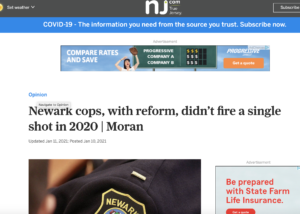Summer Break, Saturdays with Seniors, and StoryCorps Chicago
May 23, 2021 • 2 Comments • Posted in memoir writing, radio, teaching memoirStarting tomorrow, May 24, all three of the memoir-writing classes I lead will be on summer break. What fun to think of these fully-vaccinated writers visiting and hugging their grandchildren, attending outdoor concerts, visiting museums, meeting friends for coffee, heading to beaches faraway… or beaches right here on Lake Michigan. If there’s one thing we’ve all learned in the past year-and-a-half, it’s how to adapt to change! With all of them taking advantage of these new pre-post-pandemic times, I’m giving our Saturdays with Seniors feature a summer break as well.
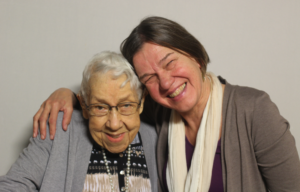
That’s Wanda Bridgeforth and me after recording our StoryCorps conversation. The two of us are always happy to be together, can you tell? Photo courtesy StoryCorps.
One change here I was sorry to hear about is the decision by StoryCorps to permanently close the StoryBooth that’d been located here at the Chicago Cultural Center for years. Here’s an excerpt from a letter they sent me to break the news:
Dear Beth,
We’re writing to share that after eight years at the Chicago Cultural Center, this September we will be ceasing operations at the Chicago StoryBooth.Since we first opened in 2013, StoryCorps Chicago has recorded and preserved more than 4,000 facilitated interviews, including yours.
We are grateful to the Chicago Cultural Center and DCASE; to our Chicago-based funders; to WBEZ, our local station partner, and producer Bill Healy; to the many organizations we’ve partnered with which have enabled us to preserve so many voices of Chicago; and of course, to the Chicago participants like you who have shared their stories with us..
With gratitude,
The StoryCorps Chicago Team
In the eight years that StoryCorps was located here in Chicago, three interviews I recorded in the StoryBooth aired on Chicago Public Radio. Two were conversations with writers who were in the memoir-writing classes I lead:
- In 2017 I interviewed Giovanna Breu. a retired journalist who had a long career with Life, Giovanna had covered the funeral and burial of President John F. Kennedy for the magazine in 1962.
- In 2019, StoryCorps recorded a conversation I had with Wanda Bridgeforth. Among many other things Wanda talked about during that interview, she outlined the boundaries she grew up with on Chicago’s South Side. “When I was a kid, if you crossed east on Cottage Grove Avenue, a policeman would come out of nowhere, ask where you were going and escort you right back across the street.”
And then in 2019, when StoryCorps) contacted my friend Nancy Faust, the renowned retired White Sox baseball organist to see if she’d be willing to let them record a conversation with her in the Chicago StoryCorps booth, Nancy agreed “as long as Beth Finke is the one who interviews me.” What fun that interview was, and what an honor to be the interviewer Nancy Faust insisted on!
Earlier this month I received more news from StoryCorps Chicago: they will soon be featuring my conversations with Wanda Bridgeforth and with Nancy Faust in two separate posts on their StoryCorps blog.
But still, I’m sorry to see our StoryCorps Chicago booth go, it was a privilege to be part of these conversations and to hear other fabulous Chicago interviews on WBEZ all these years. My appreciation goes out to Amy Tardif, Regional Manager of the Chicago StoryBooth for listening, to Bill Healy, the talented producer and great guy who put together the StoryCorps conversations that aired on WBEZ and to the entire StoryCorps Chicago team. Thanks for the memories!
Want to stay connected and celebrate StoryCorps Chicago over the summer? A limited number of public appointments are available at Chicago’s StoryBooth now through June 30. I highly recommend it! It’s easy to make a reservation online or over the phone by calling 1-800-850-4406.
